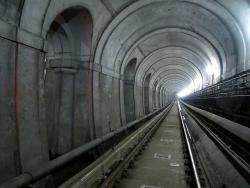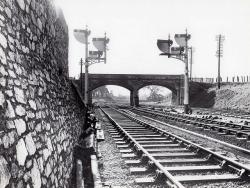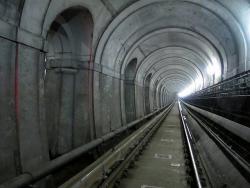By the turn of the 19th century, London's streets were clogged with traffic. Over 3,700 passengers used the Thames River's main boat crossing each day, while wagons and carts were forced to cross via the London Bridge, two miles away. Building a bridge would further impede shipping on the already-crowded Thames; a tunnel was the obvious alternative.
The first attempt at a tunnel in the present location began in 1807. The excavation had proceeded only 1,000 feet-using traditional mining methods-when crews reached a layer of quicksand and were forced to stop.






